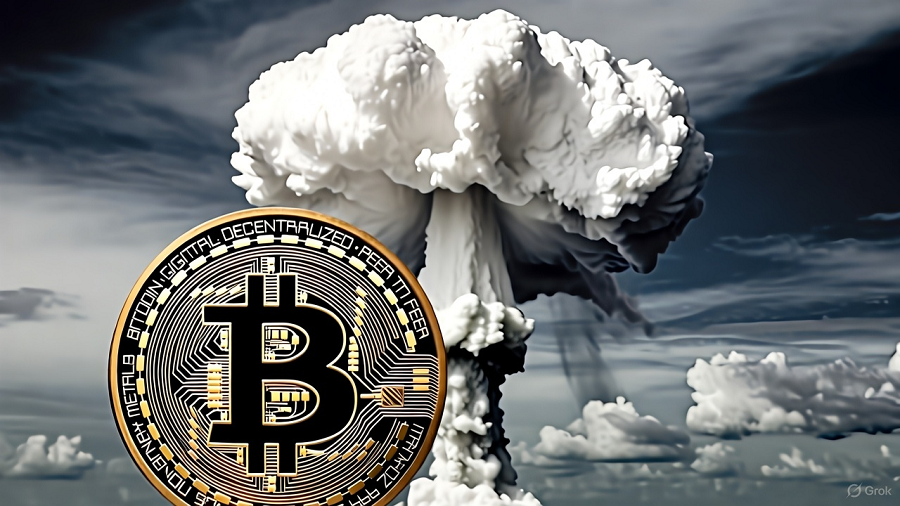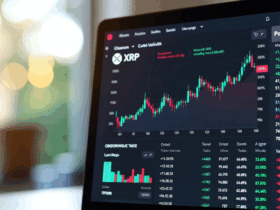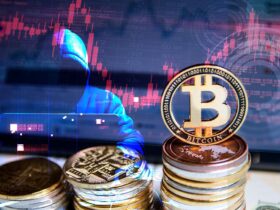The recent announcement by the president of the United States, Donald Trump, of resume nuclear weapons testing could generate a new wave of risk aversion in global markets, a situation that would impact the price of bitcoin (BTC).
The measure, which ends a moratorium of more than three decades, responds to the recent weapons demonstrations by Russia and raises tension on the international stage.
The US president’s message came this Thursday, moments before a meeting with his Chinese counterpart, Xi Jinping, in South Korea. Through his account on the Truth Social social network, Trump instructed the Department of Defense to “begin testing our nuclear weapons on equal terms” with other powers.


These types of escalations in geopolitical tensions usually generate a negative impact on assets considered “risk”, a category in which many still place bitcoin. Despite its qualities as a decentralized store of value, in the short term, the digital currency tends to correlate with the behavior of stock markets, such as the S&P 500 or the Nasdaq.
Recent market data seems to confirm this trend. After the announcement about the nuclear tests, the digital asset market experienced a contraction and its rise has been limited (even after good news such as the interest rate cut by the FED or the trade agreements between the United States and China).
At the time of writing this article, the CriptoNoticias Calculator shows that bitcoin is trading around $108,000 on the main exchanges.
The perception of risk has also become visible in the prediction markets. On the Polymarket platform, the bets on the probability of a nuclear detonation occurring this year have increased, standing at 6% (after having reached 14% hours ago), an indicator of the nervousness generated by this type of announcements.


Bitcoin, risk asset or refuge of value?
How the bitcoin price reacts to geopolitical events remains a topic of debate. While some argue that its decentralized nature and programmed scarcity make it a potential long-term haven of value, similar to digital gold, it is also true that its short-term behavior often aligns it with risk assets.
The thing is that in bitcoin the two natures coexist, for now. However, the facts suggest that growing distrust in the monetary policies of central banks and global political instability could, in the long term, strengthen the narrative of bitcoin as a store of value and a viable alternative to the traditional financial system.
For the moment, the digital asset market remains attentive to the evolution of tensions between nuclear powers. Confirmation of new weapons tests could inject greater volatility into the price of bitcoin and test, once again, its role in an increasingly uncertain world.






Leave a Reply